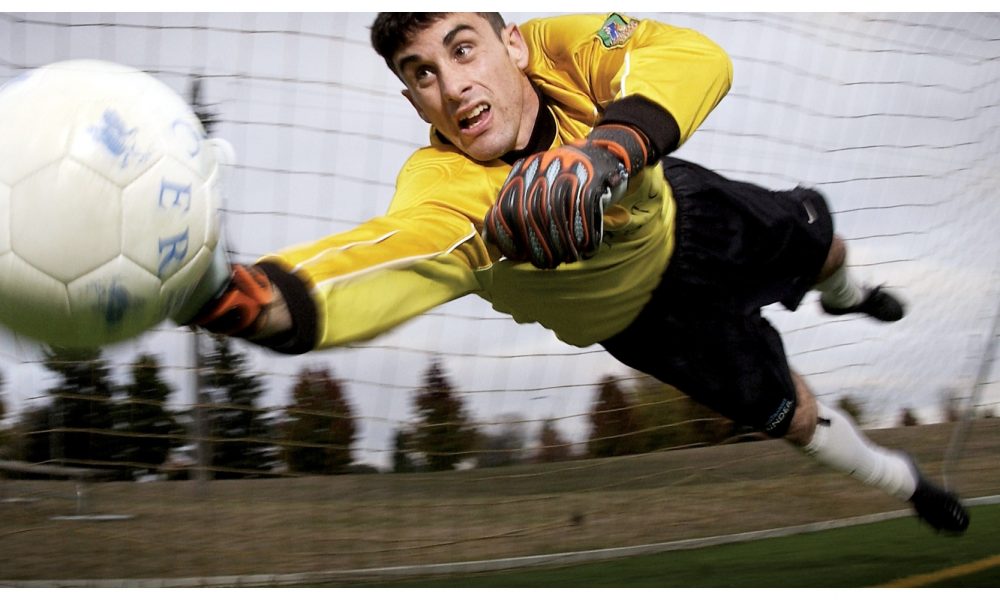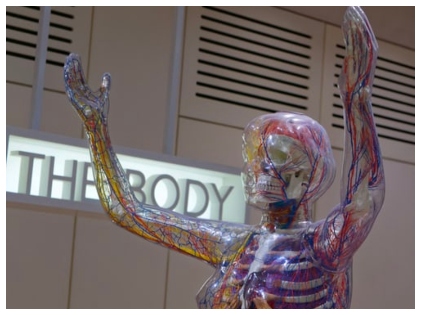
Top Athletes Are Boosting Their Performance With This Therapy!

 There’s no shortage of high-tech training equipment, out-of-the-box tools, and gadgets. All of this aims at rendering the perfect physique to professional athletes and helps them build muscles. But when it comes to “peak performances,” there’s more to physical fitness. As a result, several athletes swear by ‘neurofeedback’ in their daily regimes.
There’s no shortage of high-tech training equipment, out-of-the-box tools, and gadgets. All of this aims at rendering the perfect physique to professional athletes and helps them build muscles. But when it comes to “peak performances,” there’s more to physical fitness. As a result, several athletes swear by ‘neurofeedback’ in their daily regimes.
But what’s that? Neurofeedback implies the measurement of whatever is happening within the brain, mind, and body- resorting to high-end technology. The data delivered helps foster a skill or even bring about some necessary changes in the performance of a person, which can be something quite tangible like listening to some audio or watching a video and so on.
Athletes Love Neurofeedback
A vast majority of the elite athlete community has taken almost an instant liking to neurofeedback. For example, Tobias Harris utilizes the EEG (electroencephalogram) machine for no less than 45 minutes daily when he hits the road. They attach an EEG sensor to his head, which reads the brain waves when watching the video.
However, that is only possible after he’s fully focused on the content of the video. As a result of repetition, his concentration increases too. That causes his brain to get back to a focused state, which pays off while he’s practicing or when he’s in the court, or a high-pressure situation occurs (like a nail-biting match).
Besides this, Harris has also kept a monitor to track his heart rate and breath, just before his bed. Keeping such trackers has helped him slow down on the breathing process, and the heart rate is under control. Sleep comes easy! He had spoken about the benefits he’s derived after sleeping for 9 hours every day as he usually goes to bed early by 8:30 pm. That gives him enough recovery time.
Athletes Need To Re-Calibrate The Autonomic Nervous System
 Besides Olympians, professionals from pioneering companies see the need to enhance their lifestyle too. And even they have been able to modify their overall daily functioning using neurofeedback performance. And why not?
Besides Olympians, professionals from pioneering companies see the need to enhance their lifestyle too. And even they have been able to modify their overall daily functioning using neurofeedback performance. And why not?
After all, it’s proven to make people far more energy-efficient and improve sleep quality. Even psychologists have stated how neurofeedback and tasks related to it “re-calibrates the autonomic nervous system.” This, in turn, regulates the involuntary physiological processes like blood pressure, heart rate, and so on.
It Re-Teaches The Nervous System
According to neuro physicists, this therapy is a great way to re-teach the nervous system, on staying stress-free. The stress Our nervous system might get worked up unnecessarily due to stress, but this therapy helps it stay under control. After all, training the physiology to go ‘on’ and ‘off’ to build control over oneself and optimize the resilience factor. One example would make the process easy to understand. For instance, a golfer might rely on neurofeedback to ‘turn off’ anxiety or sensations in the body that cause palms sweating, rapid heart rate, breath shortness, and so on. Naturally, the brain learns how to acclimatize to stressful situations.
Anyone who aims to perform better or get ahead in life generally tends to build on their focus and clear thinking. They usually work great even when under pressure, and the neurotransmitter augments the overall practice. Since humans are different, it makes sense to try varied neurofeedback levels, as per consumer wants. The good thing is that there are home consumer tools aplenty that people can try and experience what neurofeedback is. And these are cheaper alternatives!
Is There An FDA-Approved Device Too?
 ‘Resperate,’ a biofeedback device, got an FDA (Food & Drug Administration) almost two decades ago. It helps to relieve oneself from high blood pressure and resulting stress. It’s cheap at $99.99, which comes with earbuds, a strap, and a small machine, alongside a digital breathing coach.
‘Resperate,’ a biofeedback device, got an FDA (Food & Drug Administration) almost two decades ago. It helps to relieve oneself from high blood pressure and resulting stress. It’s cheap at $99.99, which comes with earbuds, a strap, and a small machine, alongside a digital breathing coach.
Another one is a tad more advanced and is somewhat like a home-based EEG neurofeedback device called Muse. This one came to the forefront in 2014. However, it does not have FDA approval. On the other hand, Muse 2 in a wearable headband style and priced at $250 is among the top favorites, especially for sensors that measure heart rate, brain activity, breathing rate, and so on. The choice undoubtedly rests with consumers. However, they must do thorough research before investing in one of these products based on their needs.
More in Celeb Therapy
-
`
5 Reasons Why Dad’s Side of the Family Misses Out
Family bonds are intricate and multifaceted, often creating a unique tapestry of connections. However, many people notice a peculiar trend: stronger...
July 12, 2024 -
`
A Quick Guide on How to Get Short-Term Disability Approved for Anxiety and Depression
Living with anxiety or depression poses unique challenges, particularly in the workplace, where stress can exacerbate symptoms. For many, short-term disability...
July 5, 2024 -
`
Why Do People Feel Sleepy After Eating?
Is feeling sleepy after eating a sign of diabetes? Well, not directly. There are many reasons why you feel drowsy after...
June 20, 2024 -
`
What Is High-Functioning Depression? Symptoms and Treatment
High-functioning depression may not be a term you hear every day, but it’s a very real and challenging experience for many....
June 13, 2024 -
`
Kelly Clarkson’s Weight Loss Ozempic Journey – Debunking the Rumors
In a refreshing moment of transparency, Kelly Clarkson, the beloved singer and talk show host, sheds light on her remarkable weight...
June 3, 2024 -
`
What Is the Best Milk for Gut Health and Why?
In recent years, the milk section at the grocery store has expanded far beyond the traditional options. While cow’s milk has...
May 30, 2024 -
`
Do Dental Implants Hurt? Here’s All You Need to Know
When you hear “dental implants,” you might wince at the thought of pain. But do dental implants hurt as much as...
May 24, 2024 -
`
5 Key Differences Between A Psych Ward & A Mental Hospital
Curious about the differences between a psych ward and a mental hospital? You are not alone. With the mental health conversation...
May 16, 2024 -
`
It’s Official! “Selling Sunset’s” Christine Quinn & Husband Christian Dumontet Are Parting Ways
Have you ever found yourself unexpectedly engrossed in the personal lives of celebrities, especially when their stories take dramatic turns? Well,...
May 9, 2024










You must be logged in to post a comment Login